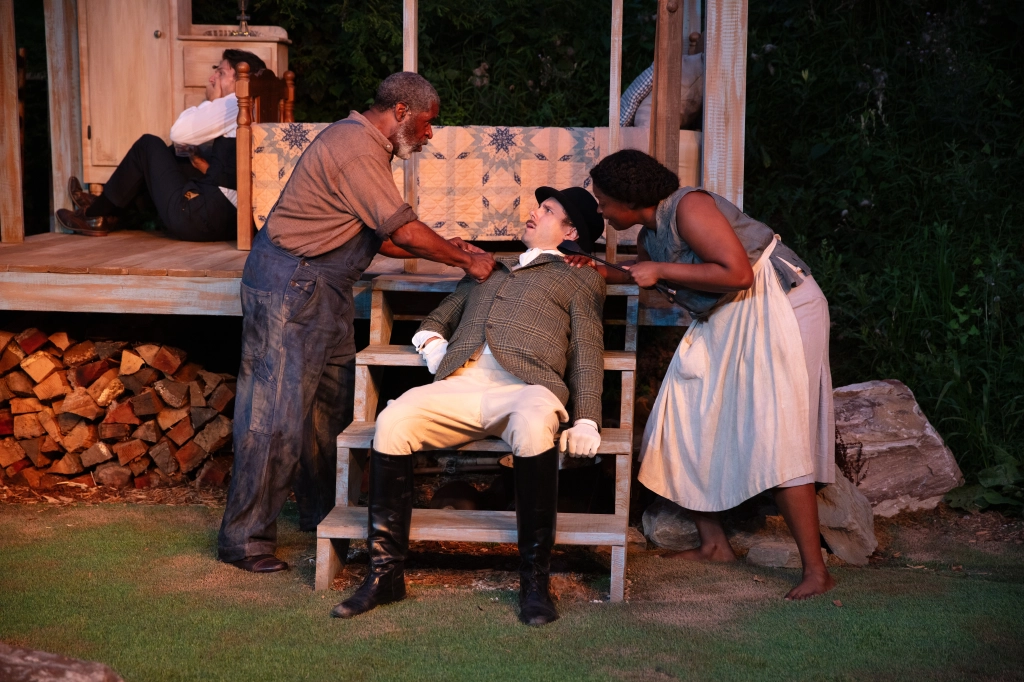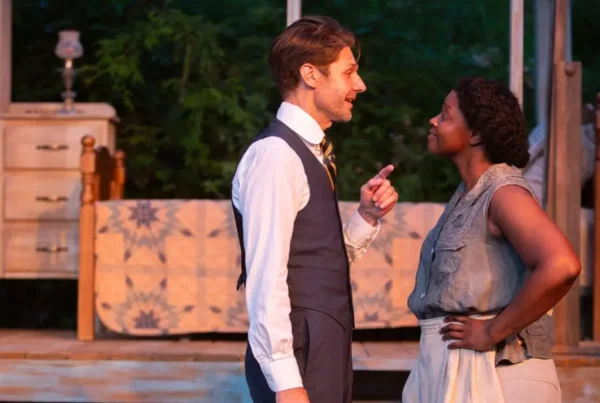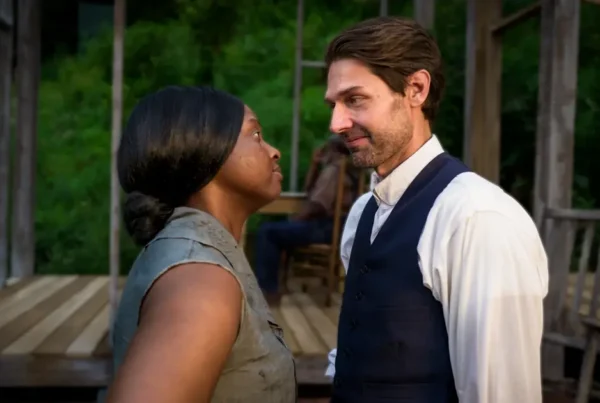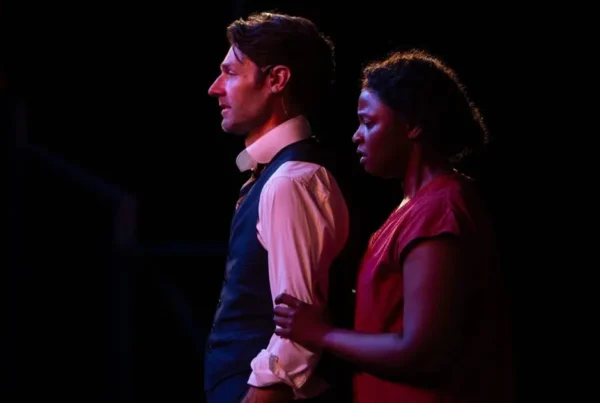
The Pittsburgh Tatler – In Quantum Theatre’s production of A Moon for the Misbegotten, the shanty where the Hogan family lives may be sparsely furnished, but it’s filled with repressed desires and longings.
That’s particularly true of the family’s daughter, Josie (Melessie Clark), who has wrapped herself in the armor of scandal as a shield against disappointment – she’s so certain that men, in general, perceive her as a “great ugly cow” that she has cultivated a reputation for being indecent, loose, and vulgar. It’s also true of the Hogan’s landlord, Jim Tyrone (Brett Mack), who uses both alcohol and sarcasm to keep genuine emotion at arm’s length.
These two are, of course, in love with each other, but Eugene O’Neill’s boozy play only allows them to tiptoe around the edges of their yearning. Their relationship is complicated by seeds of distrust sown by Josie’s father, Phil (Wali Jamal), who comes to believe that the only way he can get the two of them together is to convince Josie that Jim is about to sell their farm out from under them to their despised wealthy neighbor T. Steadman Harder (Allen Law, brilliantly comic in a cameo role), which in turn spurs her to agree to seduce Jim so that he can be forced into a shotgun marriage. But Jim is determined not to “poison” her, as he has done to other women he cared less about, and in any case he eventually becomes so sloshed that he passes out in Josie’s lap, but not before unspooling the story of trauma that has led to his need to constantly dull his senses with drink. Dawn brings an ending both to their date, and to the fleeting vulnerability they allowed themselves to reveal to each other under the spell of the moon.

L to R: Brett Mack, Wali Jamal, Allen Law, & Melessie Clark. Photo by Beth Barbis, courtesy Quantum Theatre.
The setting – outdoors on a hilltop at a fancy golf course in Verona – helps weave the magic of moonlight; C. Todd Brown’s ingenious lighting design does the rest. In some moments, it becomes a storytelling element in its own right, as when Josie, having dressed in her finest, waits on her porch steps for Jim to arrive; the transition of the lights tells us everything we need to know about her changing state of mind. Scenic designer Stephanie Mayer-Staley has created a skeleton of a small house to establish the family’s ramshackle circumstances, but the majority of the action takes place in front of the house, on a grassy area dotted with boulders that are used for both seating and a table for the ever-present bottle of hooch. Damian Dominguez’s period-appropriate costumes distinguish the characters who “have” (Jim, and, ludicrous in a riding get-up, Harder) and those who “have not” (the Hogan family).
Indeed, in O’Neill’s play, one barrier between Jim and Josie is the barrier of class – he’s a rich college-educated boy who announces his arrival with a proclamation in Latin, quotes poetry, and frequents performances on Broadway; she’s an impoverished and undereducated farm girl who has had to raise, and protect, her brothers in the household of a verbally and physically abusive patriarch. Director Cody Spellman adds complexity to this dynamic by making the Hogans a Black family, whose resentments and fears vis-à-vis Jim, their white landlord, and Harder, the entitled white man who is trying to purchase their farm, take on new resonance, as does Josie’s stubborn insistence that Jim would prefer his Broadway “blondes” to her.
The casting also helps in another way, underlining that what makes the two misbegotten lovers both so right and so wrong for each other is that they are deeply similar despite all their external differences: both bury who they really are, and what they really desire, under a façade of cool insouciance and indifference. That two such souls can only offer harm to others – even to each other – is their fundamental tragedy.




